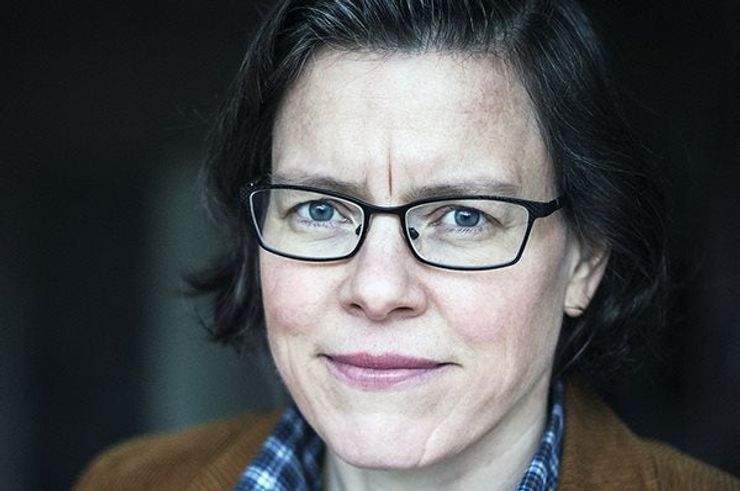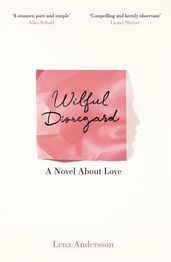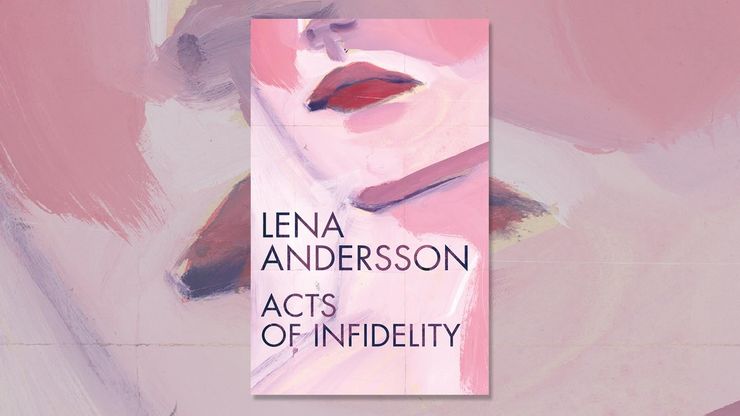Lena Andersson: The Psychology of Love
Here, Lena Andersson answers some questions about her prize-winning novel about attraction, obsession and the psychology of that strangest of emotions, love.

Wilful Disregard by Lena Andersson tells the story of Esther, who, leaving her boyfriend and her past behind, embarks on what is sure to be the greatest love story of her life. It's just a shame no one else agrees.
Here, Lena answers some questions about her prize-winning novel, and the complicated psychology of that most confusing emotion, love.
How much of your own experience is in the novel?
Ester Nilsson, the main character, is not me, and the novel is pure fiction, but I have invested quite a lot of time, devotion and energy into understanding the kind of events I write about, and this kind of man who leads a woman on and then leaves her. To that, I would add that I have had interactions, mainly with friends, where I played the Hugo Rask part, being the one who is not as interested but who gets entangled and then does not know how to handle the situation in a nice and polite way, which leads to actions that only add disappointment and frustration on the more eager and hopeful party.
Is there something that triggers infatuation? Maybe if the other one gives him/herself or his/her phone calls, messages, etc. more sparingly than the other one?
Yes, that is exactly what triggers the sense of obsession that I write about in my two books about Ester Nilsson. She gets stuck and desperate because of this unequal relationship, where she is handed out what she desires with less frequency than she would like, leaving her in a terrible state of frenzy and fever, and with a need to understand what happened and why. It is a universal recipe for controlling someone and wielding power over them, to give them just too little to feel free, secure, equal and happy in the relationship, and just too much to feel that they should pull out. If we don't understand rejection, if it seems illogical, it hurts even more. And so Ester spends a big part of the story trying to understand Hugo Rask's inner motives and incomprehensible actions.
In your novel, Ester analyses every single one of Hugo's reactions as if to convince herself that this relationship is actually going somewhere, whereas Hugo is trying to avoid any intimacy between them. How did you build your characters up?
It was important to me that the readers would follow and accept Ester's logic and psychology, even if they feel forced to reject her actions and her persistence. I wanted to portray with precision and in detail how these early and small, uncertain steps of a relationship-to-be are played out. As for Hugo, I wished to depict his active participation in their relationship and contrast it to his subsequent denial of having any interest in her and even of having had any part in their meeting. He acts very much as the ambivalent lover, torn between his indifference for Ester and his fear of not being perceived as a nice guy, which causes him to inflict even more pain. Furthermore, I wanted them to have a strong intellectual bond, not just a sexual one, since no relationship can survive on sex alone. Since Hugo is incapable of mental intimacy and Ester demands it as a prerequisite, they are doomed to fail.
Do you think that the ever growing independence of modern people is becoming an obstacle in the path of building enduring relationships?
No. If people want independence then that is what they should seek. The important thing is that they agree with those that they enter into relationships with about the degree of independence they want. It is a matter of contract and discussion. People need to calculate if the independence is worth its cost and vice versa. Ester Nilsson is very clear and open about what she wants, whereas Hugo Rask is vague and unwilling to communicate either his wishes or his lack of them. There is a collision of values between them. No one can be forced to be with someone else, this Ester knows, but actions and words have consequences. One cannot have a relationship with a person, as Hugo Rask does, and then pretend it has no repercussions. Hugo is guilty of breach of contract, even though the contract is merely mental, not written down.
Beyond the elaborate analysis of love, your novel deals with the relationship between reality and language in a very profound manner giving the impression that this is, in fact, its most important stake. Can you tell us more about your interest in psycholinguistics and the mysteries of human mind?
It is true that this is the novel's main subject, or one of them. I have written extensively on the relationship between language and reality in my columns and in other publications, and also in the second novel about Ester (published in Sweden in 2014). It is a complicated matter that philosophers have dealt with for thousands of years. It pertains to the core question of what consciousness is, what we are able to know about reality and so on. My assumption is that the human consciousness is able to perceive reality correctly in such matters that have to do with survival. We would not have survived unless we perceived the world as it presents itself. But this is just the basic level. The structure of language seems to be something we are born with. But language presents a model of the world, it is not the world itself. Language is unreliable, it is not exact, it is like evolution itself, what works is good enough. Hence the approximate nature of language. The words and sentences are necessarily constructions, interpretations of reality, not mirrors of it. Without this gap between reality and language, there could be no humour, no absurdism, no lies, no different perspectives upon things, no dynamics or interpretation of the world – in short, no literature. The analytical and psycholinguistic challenge, then, is to understand what this important gap between reality and language does to our thinking about reality, especially our delusions and misunderstandings of it.
Wilful Disregard
by Lena Andersson
On the day that Ester Nilsson, a poet and a sensible person in a sensible relationship, meets renowned artist Hugo Rask, her rational world begins to unravel. Leaving her boyfriend and her past behind, Ester embarks on what is sure to be the greatest love story of her life . . . it’s a shame no one else agrees.
Bitingly funny and darkly fascinating Wilful Disregard is a story about total and desperate devotion and about how willingly we betray ourselves in the pursuit of love.



